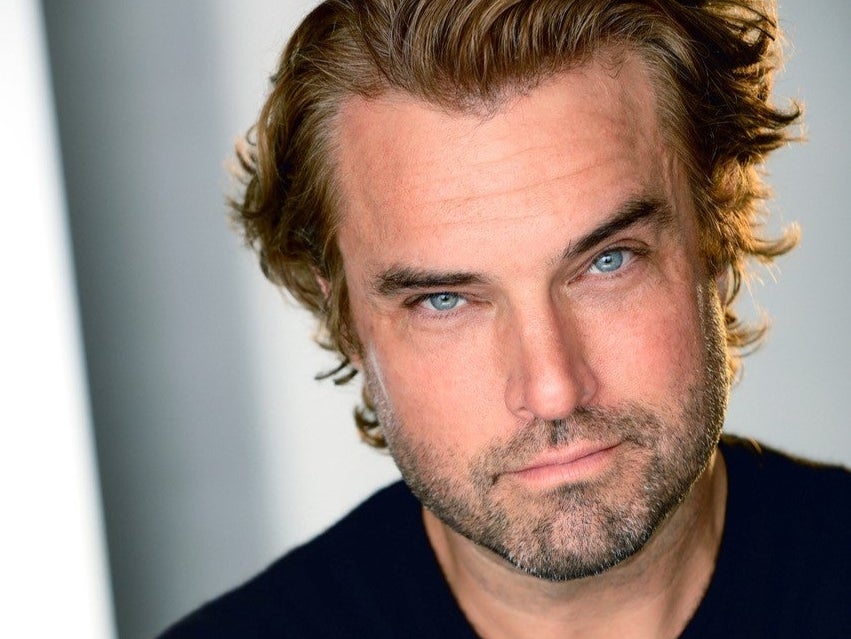Man whose father murdered his mother launches podcast to help others survive trauma
Collier Landry wants to use his experience to help people heal

A man whose father murdered his mother has launched a new podcast to help people make sense of their trauma and move forward.
On 31 December, 1989, when Collier Landry was just 11 years old, he heard his father murder his mother in their Mansfield, Ohio home.
Mr Landry’s father, John Boyle, told him that his mother, Noreen Boyle, had just gone on vacation. But Mr Landry knew that his mother wouldn’t leave without telling him. Law enforcement in Mansfield weren’t so sure.
“They were treating it as a missing persons case, and I said to them, ‘Look, my mother is dead. My mother wouldn’t leave me,’” Mr Landry said. “It didn’t matter. They left it as, okay, husband and wife got into a fight, my father was a doctor, it was a small town — they didn’t want to mess with it.”
But Mr Landry and law enforcement officers were persistent. The body of his mother was found in a crypt under his father’s new, large home in Erie, Pennsylvania in January, 1990, and his father was arrested shortly thereafter.
As the prosecution’s star witness at trial, Mr Landry was terrified that his father would be acquitted of the crime and take revenge on him. But his father was instead convicted, thanks in part to his two-and-a-half days of testimony, after which both sides of his family cut off contact with him.
“I was sort of left to the wolves,” Mr Landry said.
But despite the media circus of the trial and the trauma of losing his mother and being separated from his biological family, Mr Landry survived. After entering the foster system shortly following the murder, he was later adopted and given the space to pursue his artistic interests.
Still, Mr Landry needed a clean break. He decided to leave his program at the Ohio University School of Music and move to Los Angeles.
Getting out of Ohio and his Mansfield orbit meant that Mr Landry wasn’t recognised everywhere he went. But despite taking comfort in that relative anonymity, Landry knew that wanted to share the story of the major event of his childhood.
“My goal was to get in the entertainment industry and be able to tell my mother’s story, so she did not die in vain,” he said.
Slowly but surely, Mr Landry did just that. His mother’s case was featured on an episode of Forensic Files in 2000, and brought to the big screen in the 2018 documentary Murder in Mansfield for which Mr Landry visited his father in prison.
The documentary focused in large part not on the crime, but on its aftermath — and now Mr Landry is further broadening the scope of content about his mother’s case with his new podcast.
“I realise that my circumstances are very extreme, but I feel like, in leading by example, I’m able to share with the world that you can go through the cruellest situation imaginable to someone, especially a child, and find a way to come out the other side and live a fulfilling life,” Mr Landry said.
In his new podcast Moving Past Murder, he wants to share the part of his story that did not make headlines nearly 25 years ago — what happened after the jury reached a verdict in his father’s trial and how he moved his life forward.
“Growing up, one of the things I was pretty much obsessed with was the consequences and impacts of violence on people and communities and ancillary victims — people that are not the person who is killed,” Mr Landry said.
On his show, Mr Landry interviews guests who have also experienced traumatic events and losses — including losses that are not nearly as violent as the ones he went through as a child. He says that his story resonates with a range of people who are trying to heal,
“People want to be inspired, and they want to be inspired by honest, authentic, and real communication through the lens of a very unique perspective,” Mr Landry said.
That authenticity that comes from his first-person perspective is what Mr Landry believes sets his podcast apart from the litany of true crime podcasts that only soared in popularity with listeners during the first phase of the Covid-19 pandemic.
“Most hosts of true crime projects are obsessed with and discuss crimes that fascinate them,” Mr Landry said. “I’m someone who has actually lived through it, and talks about it openly.”
Mr Landry said that he wants to make sharing his story and helping people recover from their own traumas the work of the rest of his life. To do that, he needs to monetise the content that he’s making by continuing to attract attention to his story and style of truth-telling.
“That to me is my gift to the world,” Mr Landry said. “It’s what I think my mother would be most proud of what I’ve been able to do.”
